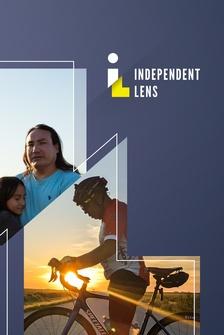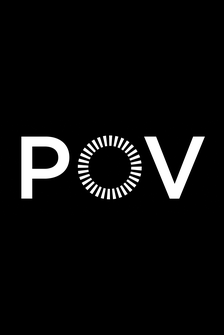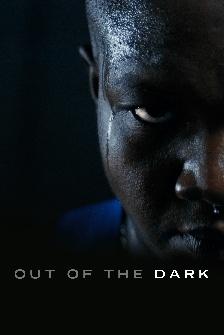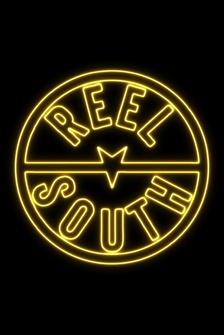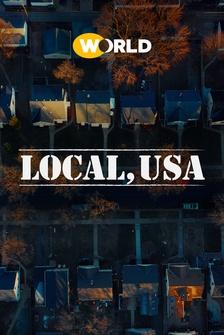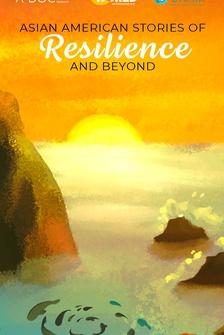It becomes kind of abstract.
You know, I'm kind of an eccentric person in a way where that's how serious I am about my music and my playing is that I have these preparation things I do.
I like to be near the ocean, I like to walk in the sand.
And then go into the water and kind of get my endorphins going, you know, so that when I get to the gig I'll be at an optimum level to express myself It almost replicates itself when I'm in the momenet musically.
It's just being in tune with everything around you.
Being in tune with the land, you know, being at one with nature, being at one with the people you love, that energy is the same with playing and the music is that healing.
I want them to feel good about it.
I want them to feel good about themselves.
If the music can affect them that way, I'd be very happy.
My name is Patrick Palomo.
Actually, my full name is Robert Patrick Sablan Palomo, but better known as Patrick Palomo.
I play piano.
Growing up there, when I hear the word "Piti," I think of the manåmku' that I would always hang out with when I was a little kid.
Almost everyone in the village were related.
My first experience growing up, there was always music in the background, either my dad playing his jazz records or my mom playing piano.
Chamorro music, nobena songs, church songs.
She was also a schoolteacher, and so was my dad.
Chamorro songwriter, he liked to write funny songs, you know?
I think that had an influence on me becoming a musician and embracing and expressing through the minor key.
It's hard for me to talk in technical terms.
It shows my lack of technical training, like school and stuff, but when I hear the note and I hear something, you know, that's how I can relate.
I was always an insomniac since I was a kid, so having a piano at home, you know?
It was just a thing about me where I couldn't really sleep unless I knew everyone was sleeping and they were all okay, but I think it was kind of like an excuse to stay up in practice as quietly as I could and make up things and try and make patterns, you know?
All these echoing things echoing in my mind.
It was then already that I knew I had this, I don't know if you would call it a love affair or just a oneness with the piano to be an extension of myself.
I can, you know, truthfully say that I was already aware of that at such a young age, you know?
It was always inside of me.
My auntie Kit, my mom's older sister, who always stayed with our family.
I guess I can say that she's the most significant person in my life as an artist and trying to express myself as a musician because of the connection I have with her.
She basically just gave her life to raising all of us.
And the other thing is really just sitting at the piano and my aunt showing me chopsticks.
She was the one who stayed home and, you know, led me through touching the piano first.
Always tagging along with her because she was a Techa.
So there was that exposure to all the novena songs from the church.
Man, Christmas was so special.
I used to memorize everything, even the nobena itself, you know?
She was a really religious, prayerful lady, so everything she spoke about had to do with doing something good and, you know, this real Chamorro spirit of giving from your heart and loving everybody.
That had a huge impact on me as a musician and an artist and as a writer.
If you want to play jazz, you have to have lament.
And you have to know how to live every note.
(piano music) So I had heard of Patrick Palomo through my parents' generation.
They had talked about this, like, this crazy guy who plays piano, like Stevie Wonder, and I just remember thinking, like, "Who can even play piano like that?
"Who is this person?"
His hands were flying, and I was just kind of like, "Okay, I didn't know we had artists like that here."
He looked like, I don't know, he and the piano were kind of like morphed into this one person, like, when he would play.
When I was in high school, that's when I first discovered jazz, so to speak.
I didn't understand it at the time, but when I heard it, I was like, "Man, this is such an awesome sound."
Like, it was speaking to me somehow, but I didn't understand what it was saying.
Later on, a friend of mine introduced Uncle Pat's music to me, and I heard it, and I was like, "This is made here?"
When I heard jazz music, I always thought it was this, like, far-off, unattainable thing that's like, "Oh, that's African-American music.
It has nothing to do with this island."
Do I consider myself a jazz musician?
Umm...
I really love jazz.
I really love singing it.
I think it's more understanding and embracing of anyone's experience.
That's what I really love about jazz and Uncle Pat.
He mentors people who he sees that have a promising spirit, not only in a musical talent, but themselves as a person.
There were so many of us who were drawn to what it was that Uncle Pat had been doing for so many years, but it was new to us, and we wanted to be a part of it.
As a mentor, he really did take us under wing, like, no rules, no strings attached.
It was literally in the most Chamorro sense.
He ma'poksai us into his music family.
For myself, this is the challenge, because I'm working with young people and trying to connect and then seeing their high musical IQ Tradewinds came about that way because I met the likes of Shannon and, you know, John and Andrew.
They embrace and they totally get the music that I love so dearly.
It lends itself to this thing that we're trying to say about us being here from Guam, our being Chamorro and Guamanian, and having all this stuff, you know, reflecting the beauty of what we have through the music.
Hafa bai hu cho'gue anggen ti ya-mu yu taiguini taya bida-mu annai maloffan hu gi mena-mu There's no simple definition of Chamorro music, just like it's very hard to define Chamorro culture.
When it comes to music, when it comes to food, when it comes to anything, you're going to see that traditionally Chamorro culture has survived by adapting outside elements.
In the case of Guam, of course, we have hundreds of years of different people mixing, and a lot of the culture was adapted to Spanish colonial rule and Catholicism.
Some of those things have stuck.
Some of them haven't.
And so we kind of look at the elements that people liked and perpetuated outside of the direct colonial influences.
It's kind of what we associate with Chamorro culture, Chamorro music today.
We have Finadeni.
You get rid of the soy sauce, the onions, the lemons, the hot pepper, those are all things that came from outside.
And yet we'd consider Finadeni part of indigenous Chamorro culture.
So with music, it's the same type of thing.
So what is Chamorro music?
That's a good question.
It's no style in particular, no rhythm in general.
In fact, Chamorro music is a wonderful blend of all the cultures that have come and gone, each leaving its mark on what was original island music.
Perhaps the only generalization we can say about the music of our island is that it is usually, but not always, performed in the language of the island.
Chamorro.
So now when we see Chamorro music in any form, in the public sphere, I think it's very important.
So when we're talking about the Tradewinds and putting these songs in the Chamorro language, that's a big deal.
kumu sangani hao na hagu ha' hu guiguifi lao hafa... What is Chamorro music?
Is it the borrowings?
What is the Chamorro language?
Is it Spanish borrowings?
Is it English infused throughout?
It comes back again to that whole thing of people questioning your identity.
Pretty much anybody can say anything is derivative, but I think it always comes back to acknowledging what all of those parts are and how they have a role in your music.
...espipiha I think those definitions of what is authentic can be very dangerous because, "it's not this enough."
I think it's very dangerous to do that to a community and to indigenous artists who are always on the front lines when it comes to cultural preservation.
It is living your culture to create.
"Mr. Palomo, your music sounds like Latin jazz and stuff, but there's just something about the way you play your notes and the way you play it, it's just so different."
I go, "That's because I'm Chamorro!"
You hear me speaking English with an accent?
That's the Chamorro side of me.
If I speak my language, it's going to sound different to you, but it's not going to change.
The way I'm trying to communicate to you, it's just that because that's my identity.
That's who I am.
kumu sangani hao na hagu ha' hu guiguifi lao hafa bai hu sangan anggen guaha otru neni kumu un faisen... Don't be discouraged because the music in your heart is coming out this way.
That you may not be Chamorro because of the style or you know, no, it's what's coming out of your heart.
And it's coming out more beautiful, more artistic and they're growing, you know.
And it's out of that embracement they're having for their culture.
He is influential to so many people, and he doesn't realize it.
I can't even think of how many generations of us he's enabled to do what we do.
I think what it is about Pat that brings out the best is his open-mindedness, just unconditional support of other people, especially younger people.
You know, hu guiya, I love him.
To me, he is the best Chamorro contemporary artist people need to hear his music because it's truly universal.
People know this, "Pat palomo, Pat palomo..." "Oh, yeah, he plays piano."
But what he really is is just a really dear, good person.
Even if you don't get to listen to his music, spend 15 minutes talking to him.
You will get that brilliance.
You know, you'll feel lighter for it.
He just has this really great ability to sit down, find a way that you're connected, and build a friendship out of that.
Chenchule, you know, Gineftao, it's very a part of who we are as people from Guam.
That was unheard of when I was in high school.
Nobody wanted to be Micronesian.
Nobody wanted to be from here.
But Chamorro art right now feels like there's this fervor, of like, wanting to catch up on like missing out for like, all of history being told that being Chamorro is less than I feel cool that I get to see Chamorro art becoming something that's not something to be ashamed of.
So it's cool that the future of Chamorro art is kids being excited to sing about themselves.
"Hey wow, you play jazz.
it's the hardest music to play."
No.
I just want to think of myself as musically affected by all the different elements of music that I've been around, but the soul is always going to be Chamorro, because it's me, "Guahu nai."
(I got it.)
(That's good.)
(All right.)
(All right.)
(We are done.)
(We're done.)
I feel like I really bared myself, and I bet you I'm going to go home and think of things I forgot.
(I know.)
(Probably.)
One, two, one, two, three, four.
Quiet nights down in Sumai A window looking out to the sea under the light of the moon Walking down the coastline where the lonely road leads me home to you.
And still my heart sings of your river and your sky only for you, only for me.
And when the morning sun kisses my face, I know you're forever mine, Sumay Quiet nights down in Sumay A window looking out to the sea under the light of your moon.
Fishing down on the coastline where the lonely road leads me home to you Oh, and still my heart sings of your rivers and your sky only for you, only for me.
And when the morning sun kisses my face, well, I know you're forever mine.
I know you're forever mine.
I know you're forever mine, Sumay You know, I just want to say Piti because I'm from there.
But I have some kind of theory to back it up.
And I'm sure this is the same in the other villages because when I saw that Agat started having a mango festival, I said to myself, "Man, darn it.
I wish it was our village that thought of that idea."
And then I read and the festival started becoming popular.
and them talking about having 15 varieties.
So what it is is someone told me that there's this thing that happens.
And that's why there's these different types of mango strains is because what happens, they say the bees.
And then I just found out recently that not only the bees, even the flies cross-pollinate the trees.
And you know what I said to myself?
"Oh my god, they take after the villagers."
Because the villagers, almost everybody in Piti is related somehow, but over the decades, the cross-pollination was going on.
So lots of exotic mangoes from Piti, just like some of my relatives there.

